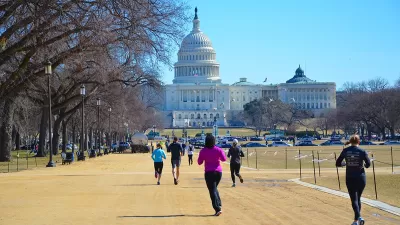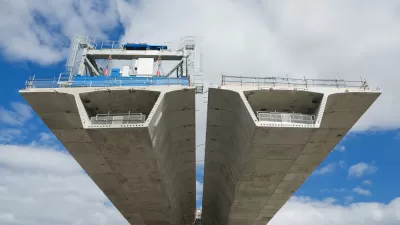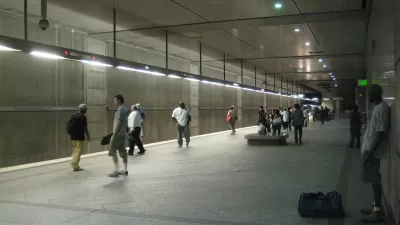Planning and construction for the new Amtrak Gateway tunnels unders the Hudson River and the next phase of the Second Avenue Subway could grind to a halt under President Trump's proposed budget that substantially cuts capital grants programs.
In response to a question from Jerry Speyer, chairman of the New York real estate firm, Tishman Speyer, during a business leaders CEO Town Hall in Washington on Tuesday morning, President Trump, a New York City developer himself, assured him and the people of New York City "that they are in good hands." [See video clip].
That assurance may come as a surprise to elected leaders and transit planners in the New York metro region who are concerned about the 13 percent cut to the U.S. Department of Transportation in Trump's FY 2018 budget, released March 16, particularly to the Federal Transit Administration's Capital Investment Grant Program that includes New Starts, Small Starts and Core Capacity Improvements
Emma G. Fitzsimmons, transit reporter for The New York Times, reports on the effect that Trump's budget would have on the $20 billion Amtrak Gateway tunnels under the Hudson River and for the next phase of the new Second Avenue subway, estimated at $6 billion.
“This is a dagger to the heart of the Gateway project that is so vital to our economy,” Senator Chuck Schumer of New York, a vocal critic of Mr. Trump on many issues, said in an interview.
Mr. Schumer, a Democrat and the Senate minority leader, said he would fight the cuts to New Starts, a program that has benefited large cities with ambitious projects.
"Only projects that are already locked in with formal federal commitments, known as 'full funding grant agreements,' would get money," reported Michael Laris for The Washington Post last month. A list of those projects compiled by transit commentator Yonah Freemark was posted last month. The Federal Transit Administration also lists projects throughout the country relying on capital investment grants.
FULL STORY: Trump Budget Leaves New York-Area Transit Projects Up in the Air

Planetizen Federal Action Tracker
A weekly monitor of how Trump’s orders and actions are impacting planners and planning in America.

Congressman Proposes Bill to Rename DC Metro “Trump Train”
The Make Autorail Great Again Act would withhold federal funding to the system until the Washington Metropolitan Area Transit Authority (WMATA), rebrands as the Washington Metropolitan Authority for Greater Access (WMAGA).

DARTSpace Platform Streamlines Dallas TOD Application Process
The Dallas transit agency hopes a shorter permitting timeline will boost transit-oriented development around rail stations.

Renters Now Outnumber Homeowners in Over 200 US Suburbs
High housing costs in city centers and the new-found flexibility offered by remote work are pushing more renters to suburban areas.

The Tiny, Adorable $7,000 Car Turning Japan Onto EVs
The single seat Mibot charges from a regular plug as quickly as an iPad, and is about half the price of an average EV.

Supreme Court Ruling in Pipeline Case Guts Federal Environmental Law
The decision limits the scope of a federal law that mandates extensive environmental impact reviews of energy, infrastructure, and transportation projects.
Urban Design for Planners 1: Software Tools
This six-course series explores essential urban design concepts using open source software and equips planners with the tools they need to participate fully in the urban design process.
Planning for Universal Design
Learn the tools for implementing Universal Design in planning regulations.
Municipality of Princeton
Roanoke Valley-Alleghany Regional Commission
City of Mt Shasta
City of Camden Redevelopment Agency
City of Astoria
Transportation Research & Education Center (TREC) at Portland State University
US High Speed Rail Association
City of Camden Redevelopment Agency
Municipality of Princeton (NJ)





























